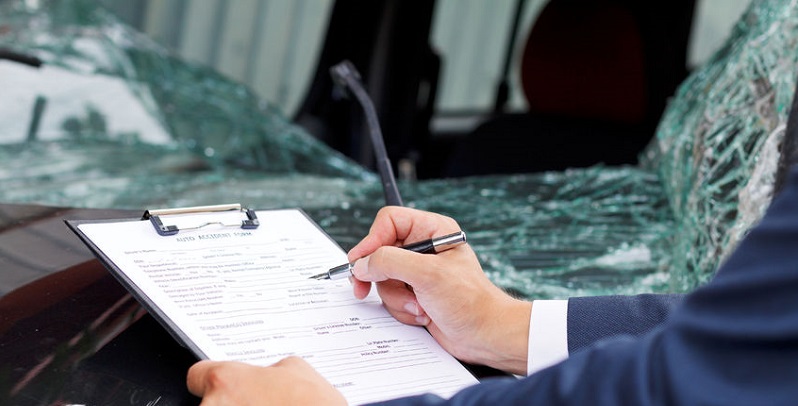Car accident damage claims often involve a lot of back-and-forth with insurance companies. If playing hardball with an insurance company isn’t your idea of a good time, you likely will be better off hiring a Colorado personal injury attorney.
You can, but here are some reasons why you shouldn’t.
Some people handle their own car accident claims. If your injuries were relatively minor, liability is clear, or you sustained little or no damages, you might be able to successfully represent yourself in a personal injury claim. But there are plenty of reasons why this might not be such a good idea:
Your injuries are serious.
If you walked away from an accident with little or no property damages and no discernable injuries, the liable party might be willing to offer you a quick settlement to keep you happy and without legal representation. But if your damages are significant, you’ve been forced to undergo extensive medical treatment, or you’ve been unable to return to work due to your injuries, you will likely need someone who has experience in resolving cases fairly, taking into account any future damages you may not even be aware of yet.
You don’t want to deal with insurance companies.
A personal injury case typically involves a great degree of back-and-forth interaction with insurance companies, such as:
- Reporting the accident
- Reviewing your insurance coverage
- Giving statements concerning the accident
- Fielding requests for your medical records
- Drafting a settlement demand letter to send to the at-fault party’s insurance company.
If playing hardball with an insurance company isn’t your idea of a good time, you likely will be better off hiring a Colorado personal injury attorney.
Liability isn’t entirely clear.
When the liable party can be easily identified, was even cited by law enforcement personnel at the scene, or you have witnesses ready to testify on your behalf, you might be able to prove fault and get a satisfactory settlement without a lawyer. But if fault is being disputed or it’s your word against that of the other driver, you can expect a fight regarding who is willing to accept liability, and an experienced personal injury attorney is equipped to fight that battle for you.
You’re at least partially at fault for the accident.
Some people think that if you’re even slightly at fault for a car accident in Colorado, you won’t be able to file a lawsuit and collect damages from the other driver, but this is not necessarily the case. Colorado is a modified comparative fault state, meaning that any damages awarded to a plaintiff will be reduced by his or her relative fault. But as long as your fault is determined to be less than 50 percent, you can still collect a reduced award. If your fault is 50 percent or more, you won’t be permitted to collect anything from the other party.
You have no idea what your auto accident case is actually worth.
Most personal injury victims are not experienced in calculating the damages sustained in an automobile accident — costs to fix or replace your vehicle, lost earnings and diminished earning capacity, present and future medical bills, and other financial losses that are related to your accident. While economic losses such as medical bills and property damage can be relatively straightforward to calculate, estimating the value of non-economic damages such as pain and suffering, loss of enjoyment of life, and loss of consortium is something you probably should leave up to an expert.
If you’re looking for an experienced Colorado personal injury attorney to represent your interests in an auto accident claim, contact Dan Rosen for a free consultation with no obligation.

